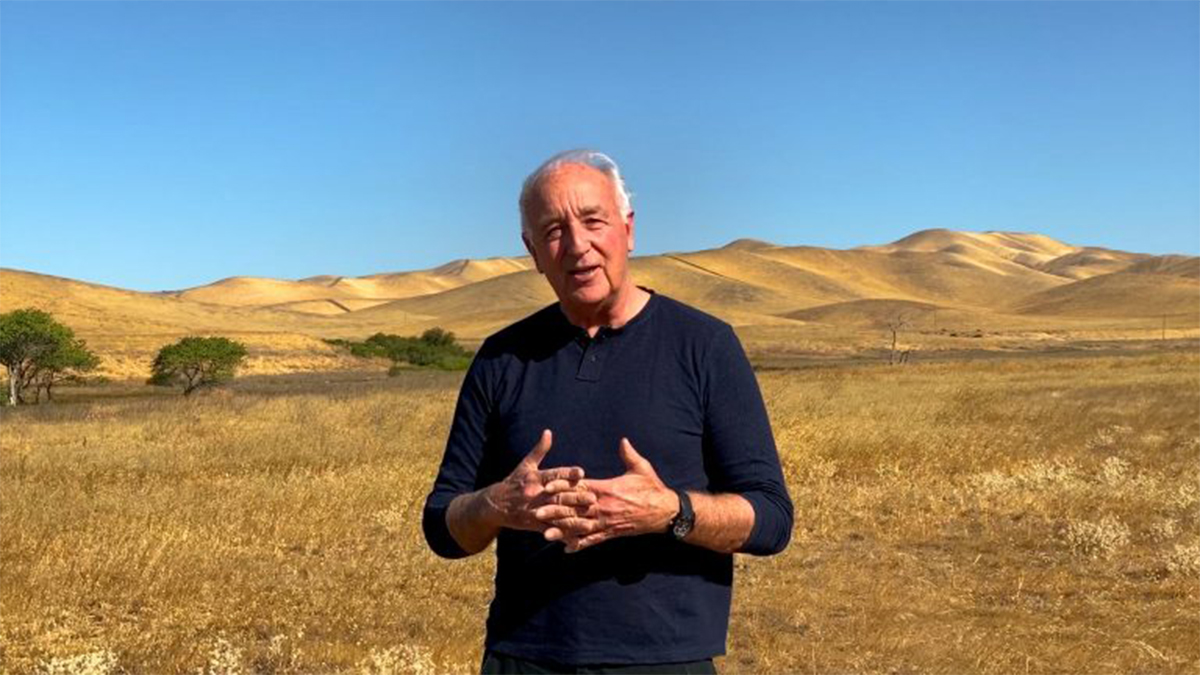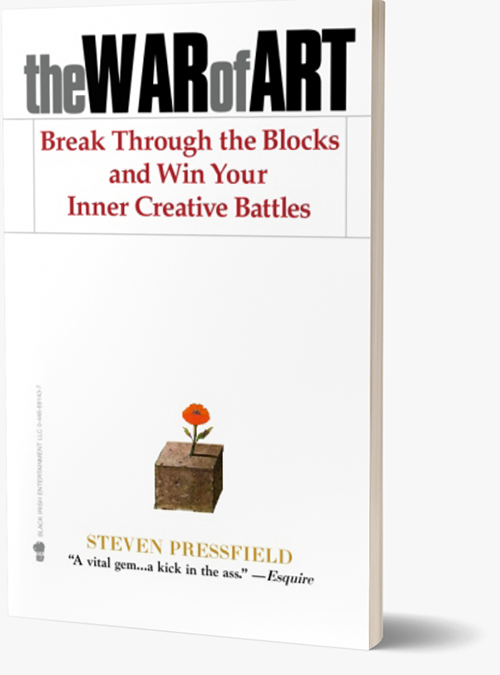
Interviewed by Michael Laskow
You wrote the copy for the Gravy Train dog food “Just Add Water” advertising campaign in the ’60s. Writing about dog food VS writing novels is probably not unlike the reaction I’ve had from some musicians about writing instrumental cues for reality TV shows. They turn their noses up at that, and think it’s not cool. But I compare it to painting houses by day to put food on the table, and then going home and painting fine art at night, because they’re related. They both use brushes; they both require blending colors; they both require a steady hand. So, while one is more sophisticated and it’s art, and the other one isn’t, at least it keeps your head kind of in the game and builds a little muscle memory, if you will. You can feel good that you’ve employed some of the same skills in a related field.
So while composing music cues might not be high art, it’s still creation. And frankly, some of the cues I hear from some of our more successful members, could qualify as high art. They’re as good as any records out there. It keeps your brain in the game; it helps you become much faster with your studio equipment, which is important when you’re making music; it helps you become better and faster with your production chops, also good for when you’re going to record your grand opus; it helps you write melodies more quickly; and it introduces you to multiple genres of music and how each one can create a certain mood or emotion, which is obviously key when you’re working to picture.
“If you’re a writer, keep reading, even if you can’t find work. Read the good stuff. Get it into your head; get it into your DNA.’ I’m sure there’s an analogy in music—keep listening, exposing yourself to what other people are doing, and studying them...”
So, am I nuts in thinking that anything you can do that teaches discipline, and develops that muscle memory, and keeps a roof over your head while you’re working toward your grand opus isn’t such a terrible thing, right?
I couldn’t agree more, Michael. I agree completely. In fact, I just did a blog post a little while ago... When I first got out to Hollywood, I did some work with a director named Ernie Pintoff, who actually won an Oscar for a short subject made with Mel Brooks called The Critic. But he did episodic TV. You know, he did Kojak and stuff like that. And I would work for him, and I was like his slave. We would kind of work side-by-side at a table. But in any event, he gave me a great piece of advice, which is exactly what you just said, Michael. He just said, “Keep working. Don’t turn down anything. Work on a slasher movie; work on a porn movie; do stuff for free; schlep coffee for people; get on a location.” Because, like you say, you’re in the game, you’re making money, you’re making friends. You never know, some person that’s schlepping coffee today—and I can think of one guy in particular—is a big movie producer the next day, and he might buy your stuff, you know? You do a free rewrite for some actress—a weekend rewrite on something—two years from now she could pull you in on a project. So, I’m definitely in favor of that. And the other thing is, like you, I’ve been doing certain videos lately where I’m looking for music cues, and they’re hard to find. It’s wonderful. If I could find somebody who could do it, I would hang on with both hands, because it makes such a difference. So that’s one thing: Don’t turn up your nose at anything, you know. Keep working.
Another thing that [Ernie Pintoff] said to me was—and this is absolutely true—“If you’re a writer, keep reading, even if you can’t find work. Read the good stuff. Get it into your head; get it into your DNA.” I’m sure there’s an analogy in music—keep listening, exposing yourself to what other people are doing, and studying them and how they make that effect or whatever.

You’re absolutely right. I tell our members that all the time, but they get frustrated. Our members range from 18 years old up to 75. We actually had a member who passed away recently, I think at 96 or 99 years old, and we were helping him to make money during his last years. In the last 10 years of his life, he was making like an extra 20 grand a year from getting stuff he wrote and recorded in the ’40s in some really big movies and TV shows. I called him up one day and I said, “I just want to congratulate you. All of us here at TAXI are so happy that at your advanced age you’re making money doing music, and that the stuff that you recorded in the mid-’40s is now finding an audience out there.” And he said —and I’m cleaning it up here a bit—but he said, “Listen young man, I don’t give a [damn] about the money; it’s the fact that this music has been sitting on a shelf since 1943,” or whatever it was, “and finally, through your efforts in getting me to a publisher that got it in all these movies and TV shows, millions of people are hearing my music, and that’s all I care about.” It made me cry.
Yeah, and there’s a little sidebar on that. My agent is a guy named Sterling Ward. He just turned 100. He just made the deal on my most recent book a couple of months ago. He made the original deal for Jack Kerouac’s On the Road back in 1953, or something like that. The offer was 900 bucks; Sterling got them up to a thousand!
“There’s a lot to be said for being a leader and for being ahead of people. And I know it’s hard to sell that stuff, but it’s also a question of sort of what’s your muse telling you to write? What is your heart telling you to write in terms of music?”
That’s great! You know, you just talked about the advice you go to “Read. Just read.” Well, the advice I give to our members when they get frustrated by our screeners telling them, “This is really good, but it’s just not contemporary enough.” And more often than not, the people in the industry want contemporary-sounding music, because the story is contemporary. It’s taking place in a contemporary time period, so they need music that matches that. And our members get very frustrated when they hear “not contemporary,” and my advice to them is, “Just listen to contemporary music. Go on Spotify and listen to the charts on Spotify every week. Don’t turn on oldies radio.” I mean, I personally love The Eagles, The Beatles, Steely Dan. If I were writing music, or if I was going back to engineering or producing, the stuff that I would do would sound like The Beatles, The Eagles and Steely Dan. I would have to spend a year absorbing myself into contemporary music so that I could analyze. What’s the hi-hat doing? Oh, that snare sound is a little different. Oh, the vocal doesn’t start right on the beat, it starts before the “one beat.” All these little things. Melodies have become different, choruses used to get big and pop, but now they’re more even; there is all this little ear candy around them that designates it as the chorus. The rules of the game and the fashions change, and you have to keep up on it if you want to be in the game. It’s just that simple. So, yeah, read, read, read, listen to music, listen to music.
Although, let me take the opposite side of that, Michael. Sometimes... If you think about it, a guy like Steve Jobs and the products that he came up with—the Macintosh, the iMac, the iPhone—nobody was waiting for those products, right? He led them; he was ahead of them. If he had done focus groups and said, “What do you guys want? What can I give you,” Nobody would’ve come up with the iPhone, but he did... So there’s a lot to be said for being a leader and for being ahead of people. And I know it’s hard to sell that stuff, but it’s also a question of sort of what’s your muse telling you to write? What is your heart telling you to write in terms of music?
Well, there’s an adage in the record industry, that is, “Just do what you do, do it well, and eventually the industry will come around to what you do.” But not everybody is going to be like our 96-year-old TAXI member, where it did come back around to him; it just took like 50 years to get there.

So, it’s the ongoing battle of art and commerce, and a lot of the creative types, in all the creative fields I know, might say, “Why do I have to follow a story arc?” Well, because human beings like things presented to them in a pattern within art—with structure. You know, songwriters say, “I’m just going to be the greatest songwriter ever; I’m just going to create what my muse tells me.” But I think if you develop the craft and then let the muse take hold, that your stuff comes out better, because you’ve got the underlying support of the craft. Which you obviously earned by spending all those years writing and reading. So, yeah, you should follow your music, but you have to have the craft as well.
Here I am telling Steven Pressfield... Oh man, this is one of those moments when I watch the Road Rally later, I’m gonna go, “What the hell was I thinking?”
“So, I’ve pretty much given up trying to second-guess the market. I mean, within reason, I always ask myself of an idea as I’m starting to work on it, ‘Does this have a chance? Is anybody gonna want this at all?’ And if it is completely out of left field, then maybe I won’t do it.”
Anyway, art and commerce. Any thoughts about the ongoing battle?
I have certainly been one of the guys that is on the art side, in the sense that the two books that were my most successful in terms of novels were The Legend of Bagger Vance, and the book that came after that, Gates of Fire, that was about the 300 Spartans at Thermopylae. Both of those books, if you think about the idea for them, sound like the dumbest idea you could possibly imagine—the least commercial ideas. And I thought so as I was writing them. I thought, “Nobody is gonna like this except me; nobody is gonna be interested in this except me.” But I was seized by both of them. You know, I absolutely had to do it, and those were the ones that were the most successful. And when I’ve had ideas where I think, “Ah, this is right and it’s a fastball right down the middle,” those are the ones that have not done well.
So, I’ve pretty much given up trying to second-guess the market. I mean, within reason, I always ask myself of an idea as I’m starting to work on it, “Does this have a chance? Is anybody gonna want this at all?” And if it is completely out of left field, then maybe I won’t do it. But I will try to follow my heart and what I love, and sometimes people find it. Sometimes what you love is what other people love too. Sometimes.
I’m not saying you shouldn’t follow your heart; I’m just saying having the writing chops, understanding structure, understanding...
Same thing with music. Obviously, you’ve got to know what you’re doing.
Right. You can’t just have a song for like 17 minutes with no chorus. People like an intro, a verse, a chorus. We’re wired for that. I don’t know if anybody ever shared this with you, but the choruses in music actually came from back in the days of the Knights of the Round Table, when traveling minstrels would go from castle to castle and play gigs at court after court. And somebody once played something that had a refrain, and people in the court started singing along with it, because it was repetitive. And whoever that was went, “Ah, repetition.” So allegedly, that’s where the chorus came from.
I want to go back to another part of your life. This was personal for me when I read that you were a Marine. We have a daughter that became a combat search-and-rescue soldier at 18. And I watched what that did to her, how fast she grew up and how her brain wiring changed. Everything. Not only more adult, but more capable, more everything. How did your time in the Marines affect you as a person, and did that have any effect on your discipline that was required later in life?
Definitely. Now I was a reservist, I was one of the guys that did six months of active duty, then five and a half years in the reserves. But it’s funny that while I was in, I resisted it mightily. You know, I said, “I am not going to be brainwashed by this.” But once I got out, I discovered—particularly as a writer where you’re facing the blank page and you’re all alone and all that—that I was falling back on the concepts of discipline. But instead of it being externally imposed discipline, it became self-discipline. But very definitely, I kind of live my life... You know, I’m up early, I work out, I have a sort of military-type of day. And I think of myself as kind of a warrior of the page, you know? That I’m enlisting the virtues of a warrior, but internally, against the demons of resistance, and so on. That that is the enemy, and that I have to fight it every day. It is a battle every day, and I think of myself as like a soldier in that war.
Do you ever go back and read what you wrote about resistance when you are having a day when you were being unproductive or waiting for the muse to show up? Do you read your own stuff?
Actually, I do, and it’s a weird feeling, because I say to myself, “Yeah, I should take that lesson myself.” I forgot the lesson. I need to crack the whip harder over myself.
Don’t miss Part 3 in next month’s TAXI Transmitter!
I encourage you to purchase Steve’s life-changing book, The War of Art, that thousands of TAXI members have read. You can find it in all of its forms, here.